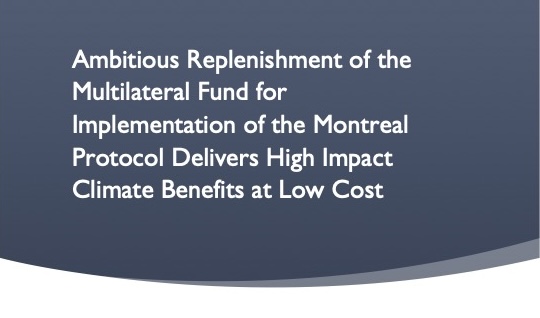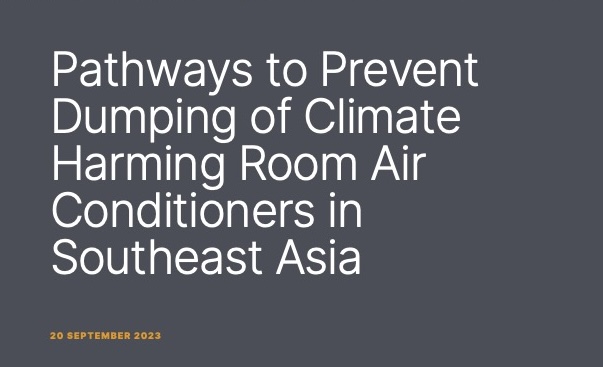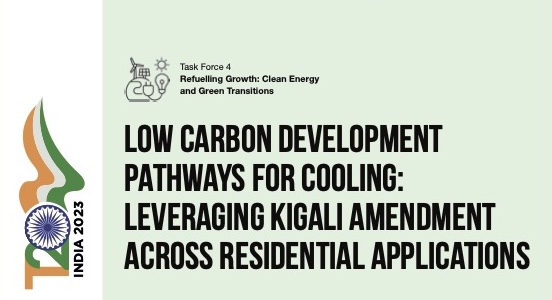Cooling in a Warming World
In a warming world cooling will be increasingly important for people’s health and productivity, and for achievement of many of the SDGs. However, growing demand for cooling will, if current approaches are continued, contribute significantly to further global warming, both from the emissions of HFCs and other refrigerants, and from the CO2 and black carbon emissions from the mostly fossil fuel-based energy currently powering ACs and other cooling equipment. If robust policies are implemented quickly to promote the use of best available technologies in the cooling sector, the associated emission reductions will make significant contribution to meeting Paris Agreement goals. A combined strategy to improve energy efficiency of cooling equipment while phasing down HFC refrigerants under the Kigali Amendment to the Montreal Protocol presents one of the biggest mitigation opportunities available today.







